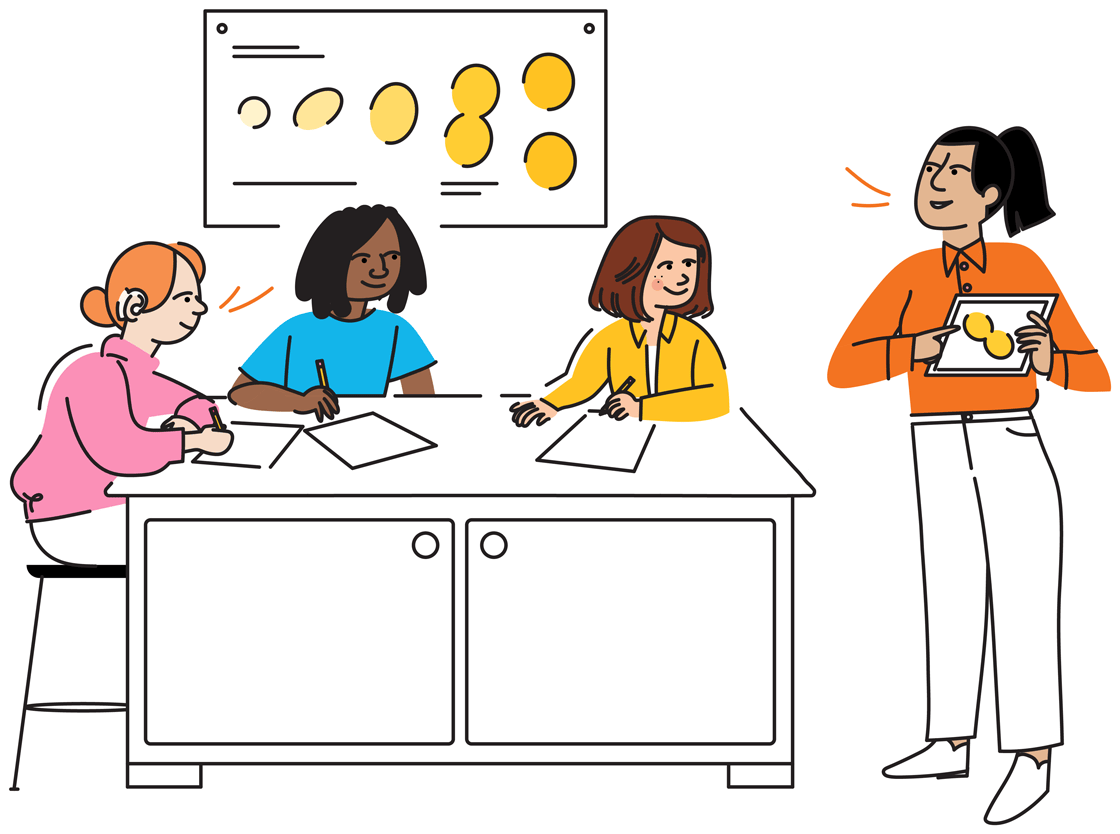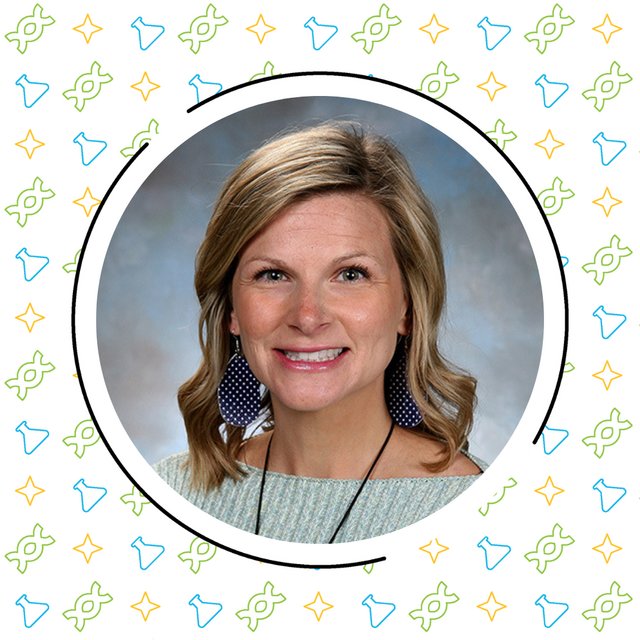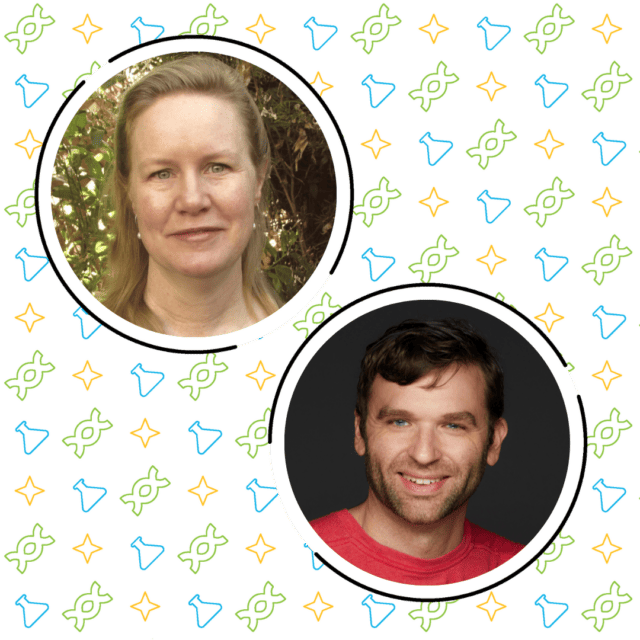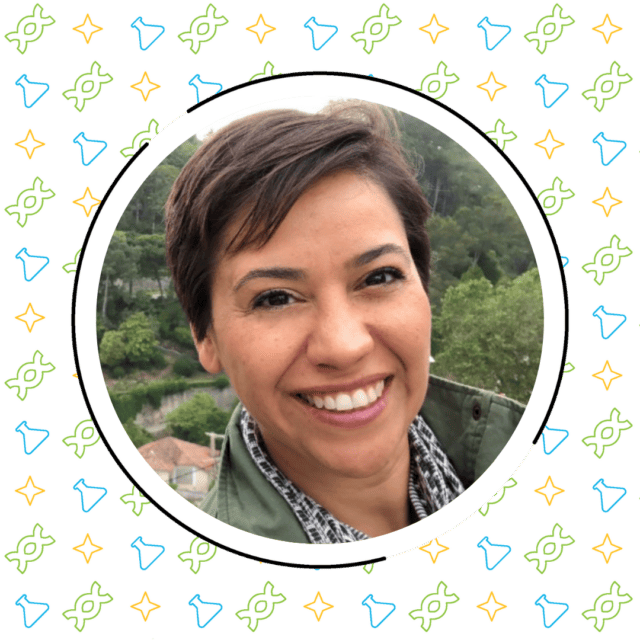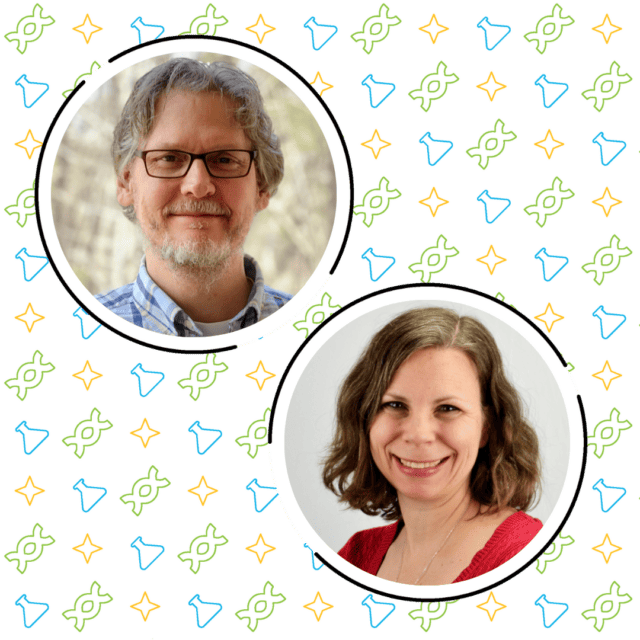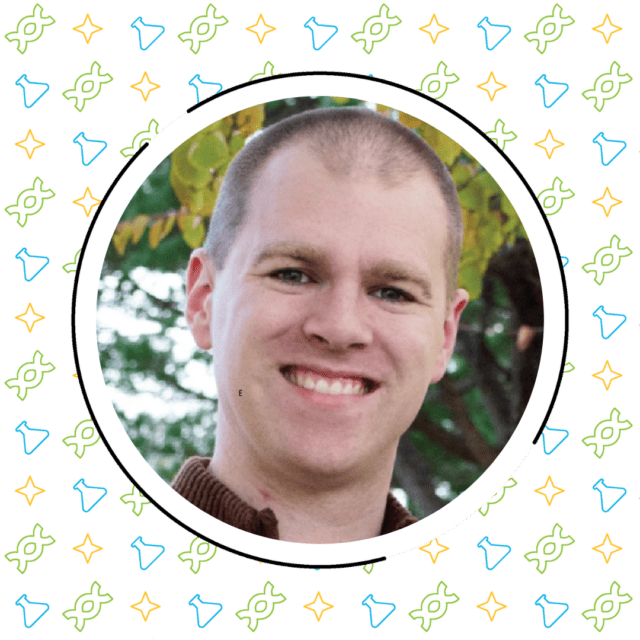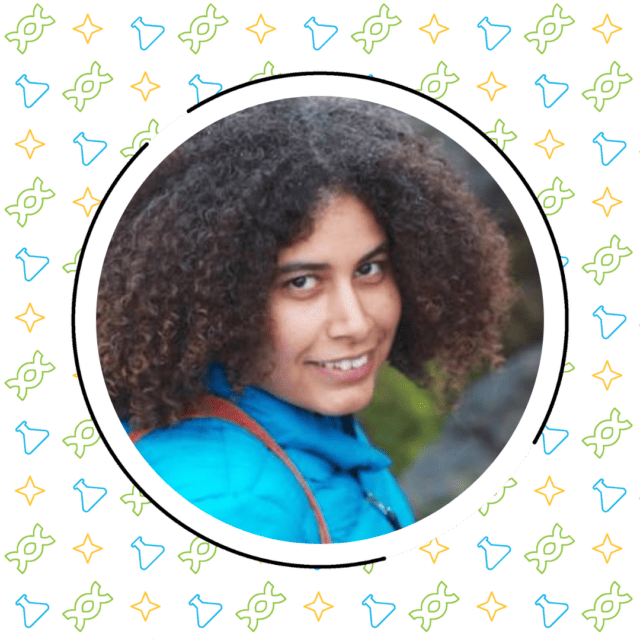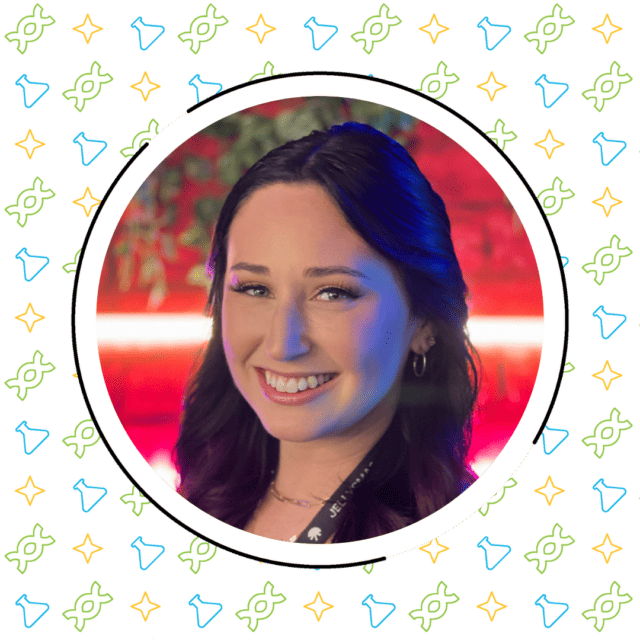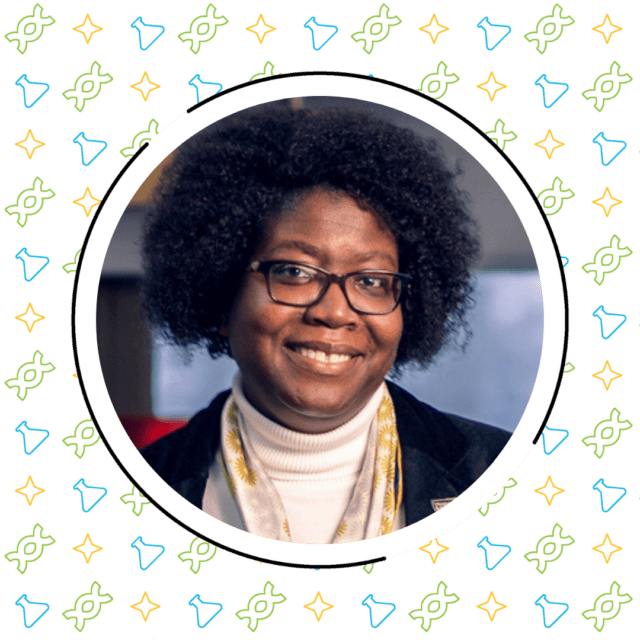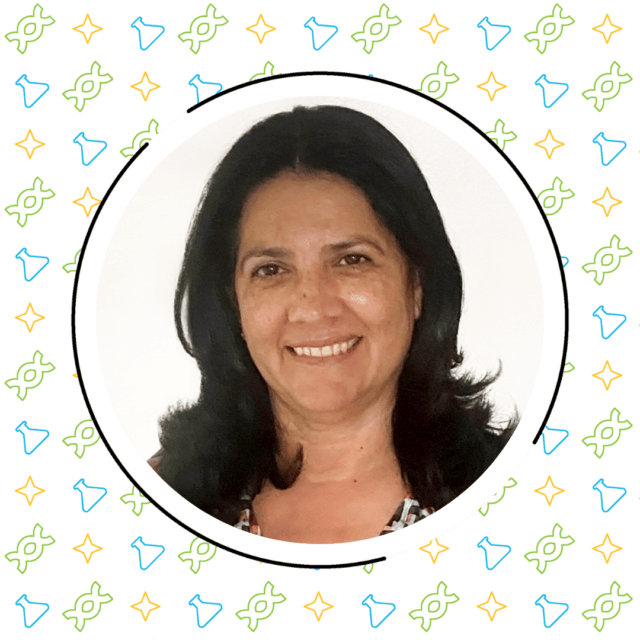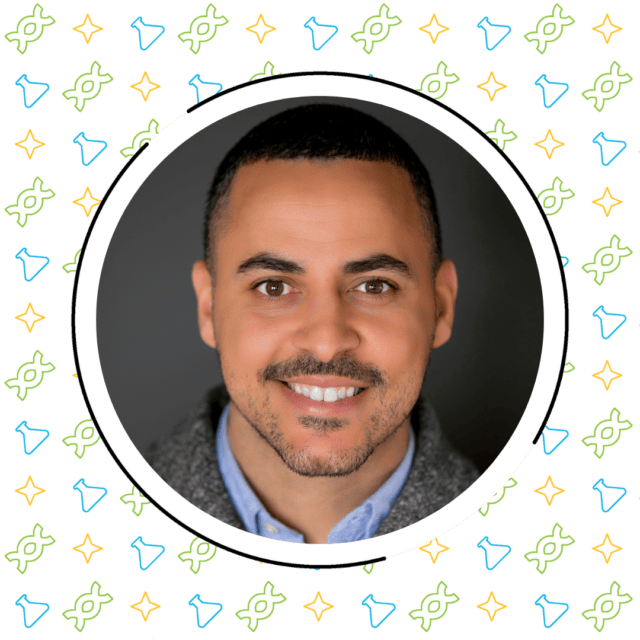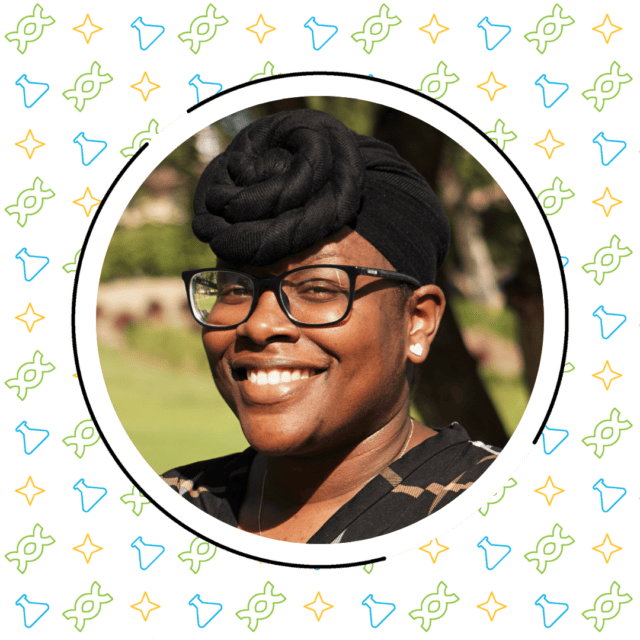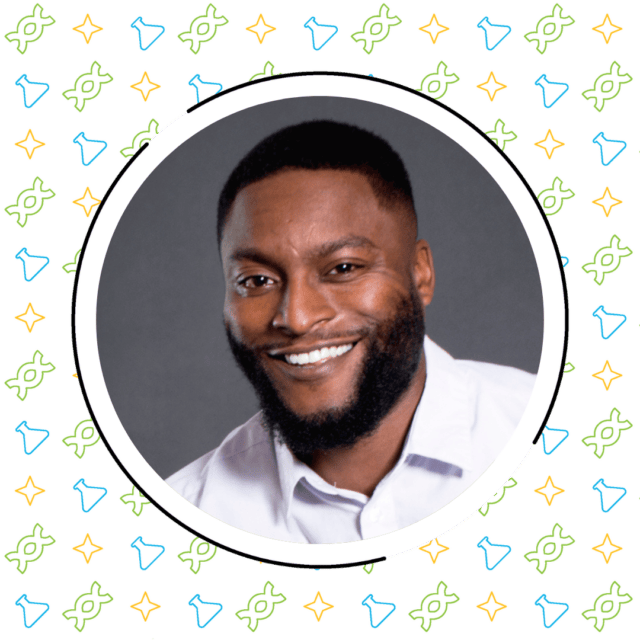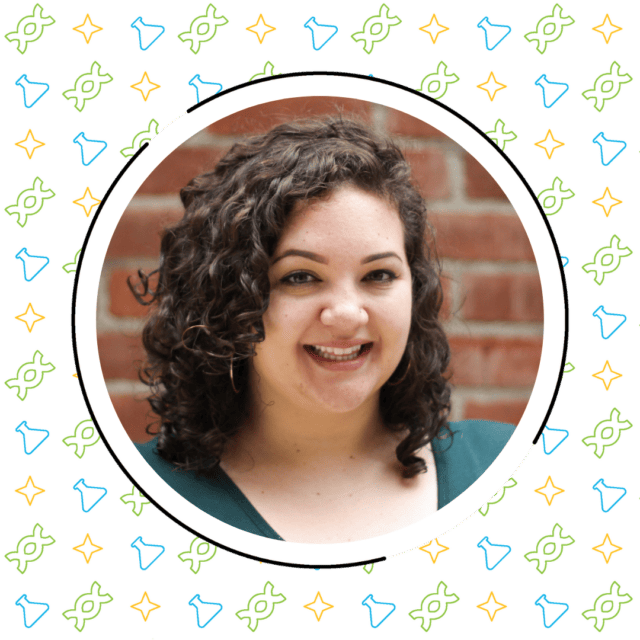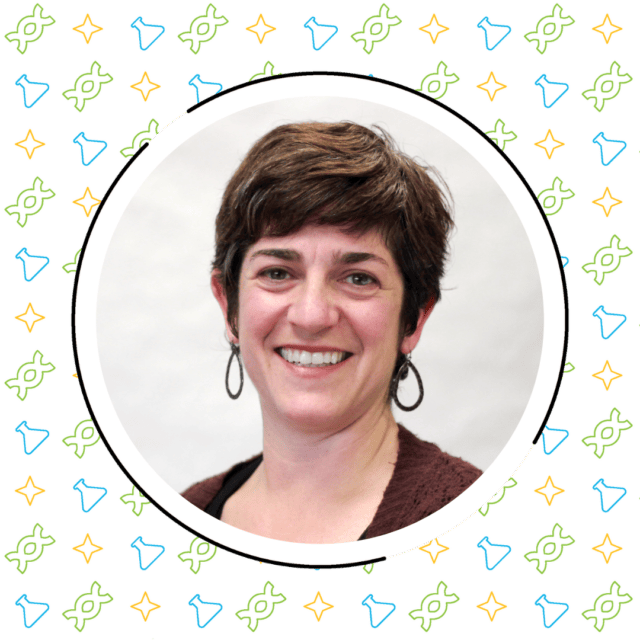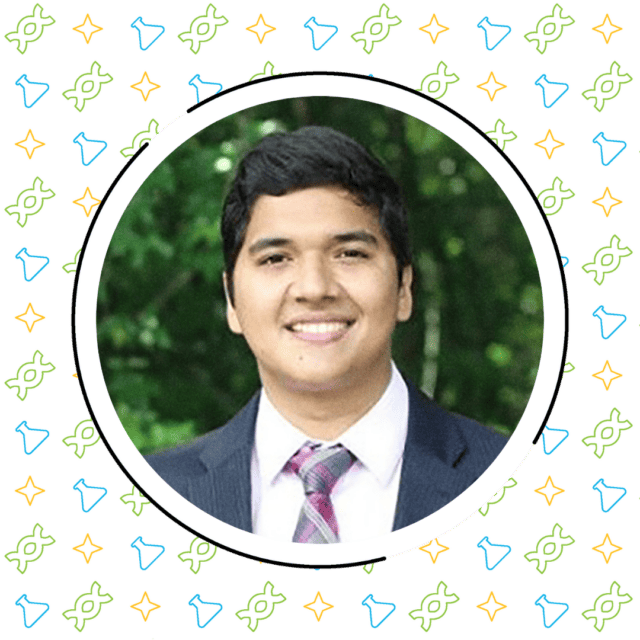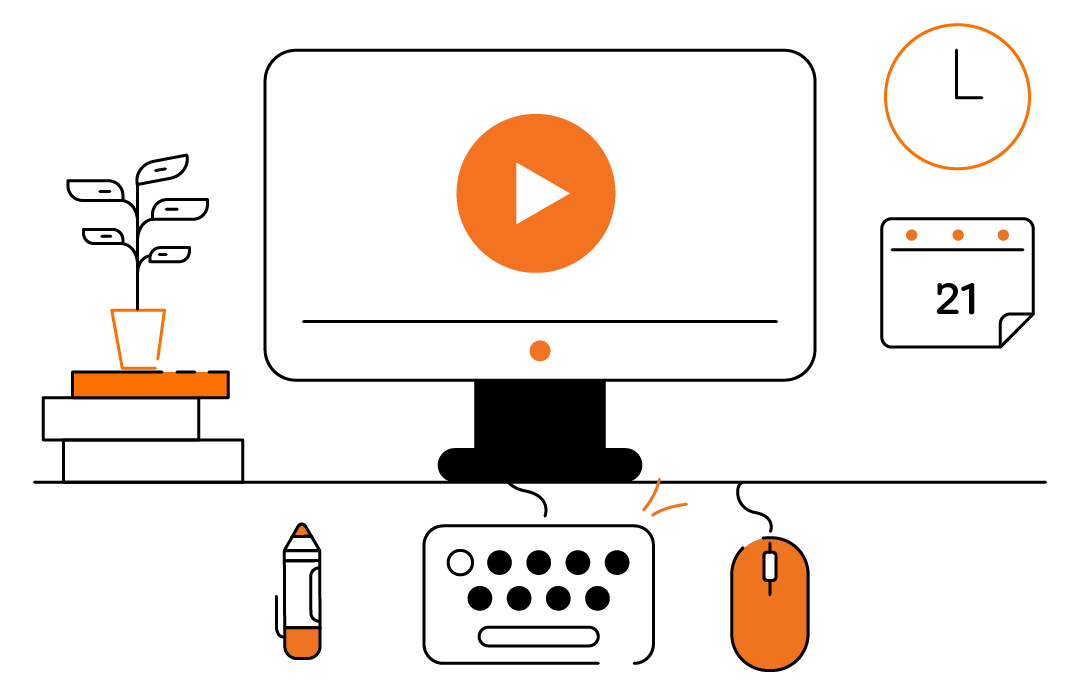Science Connections
Welcome to Science Connections! Science is changing before our eyes, now more than ever. How do we help kids (and ourselves) keep up? How are we preparing žâ―ÐĘÓÆĩapp to be the next generation of scientists?
Join our host Eric Cross as he sits down with educators, scientists, and subject-matter experts on ways to best support žâ―ÐĘÓÆĩapp in science classrooms. Hear how to inspire kids across the country to love learning science, and how you can bring that magic into your own classroom.
Stay connected

Meet our host:
Eric Cross
Eric Cross is a seventh grade science/technology teacher, grade level lead, and digital learning innovator for Albert Einstein Academies, International Baccalaureate žâ―ÐĘÓÆĩapp. He is also an adjunct professor of learning and technology at the University of San Diego and a Google certified innovator. Eric earned a bachelorâs degree from Azusa Pacific University and a Master of Education from the University of San Diego. He had 17 years of experience working with at-risk youth and underserved populations before becoming a middle school teacher. By building relationships with žâ―ÐĘÓÆĩapp, colleagues, and the community, he has become an empowered leader in and out of the classroom. Through meaningful learning experiences centered around student agency, he’s made STEM accessible to žâ―ÐĘÓÆĩapp with highly engaging lesson design, thoughtful integration of digital tools, and culturally relevant pedagogy.
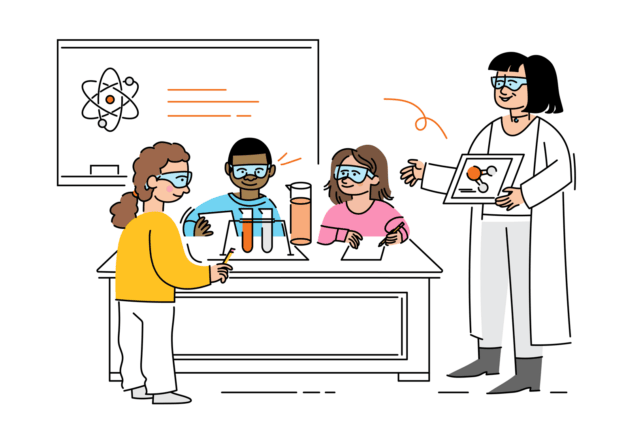
S3: Science as the underdog
Season 3 is all about âscience as the underdog.â Often overlooked in Kâ12 classrooms, science is actually key to student success. This season, we investigate why, and discuss how science can be better utilized in žâ―ÐĘÓÆĩapp.
Listen as we dive into hot topics, including tips for integrating science instruction and literacy, the role of project-based learning, and community-building through science.
-
Episode 8: Making science a superhero
Tune in to the finale of Science Connections with elementary educator and recipient of the 2023 Anton Banko Award for Excellence in Teaching Elementary Science, Kate Bala. In this episode, Kate shares teaching tips on how she seamlessly integrates science with other content areas to give žâ―ÐĘÓÆĩapp an engaging, phenomena-based learning experience. Listen to hear about Kateâs unique teaching style and the helpful tips she offers to make science the superhero of any classroom.
Listen now -
Episode 7: Telling the story of science
Join us for a new episode with doctoral student and 2023 NSTA keynote speaker, Minerva Contreras. Listen as Minerva tells her science story, discusses the benefits of storytelling in science, and shares how diverse representation and inclusion in science opens doors for all žâ―ÐĘÓÆĩapp.
And donât forget to grab your to track your learning and find additional resources!
Listen now -
Episode 6: Identifying and addressing pseudoscience
Join us as we continue our discussion on the importance of integrating critical thinking into the science classroom with former teacher and current director of education at the Center for Inquiry, Bertha Vazquez. Listen as Bertha shares her experience with engaging žâ―ÐĘÓÆĩapp through identifying pseudoscience, and how developing these skills creates an identifiable impact on the real world.
And donât forget to grab your to track your learning and find additional resources!
Listen now -
Episode 5: Thinking is power
Join us as we sit down with Melanie Trecek-King, biology professor and creator of Thinking is Power, to explore how much of an asset science can truly be in developing the skills žâ―ÐĘÓÆĩapp need to navigate the real world. Youâll learn about âfoolingâ žâ―ÐĘÓÆĩapp and the importance of developing critical thinking, information literacy, and science literacy in the classroom. Weâll also share real strategies and lesson examples that help build these essential skills and engage žâ―ÐĘÓÆĩapp in learning.
And donât forget to grab your  to track your learning and find additional resources!
Listen now -
Episode 4: Using AI and ChatGPT in the science classroom
In the latest episode of the Science Connections podcast, we explore AI in education and its impact on žâ―ÐĘÓÆĩapp. Listen as I sit down with teachers Donnie Piercey and Jennifer Roberts to discuss ChatGPT and how we can use it to build science and literacy skills in Kâ12 classrooms while preparing žâ―ÐĘÓÆĩapp for the real world.
And donât forget to grab your  to track your learning and find additional resources!
Listen now -
Episode 3: Instructional strategies for integrating science and literacy
Weâre continuing our investigations around science and literacy, with Doug Fisher, Ph.D., professor and chair of educational leadership at San Diego State University. We talk about the importance of integrating science and literacy, as well as practical guidance for teachers who want to unite the two disciplines in their own classrooms.
Listen as we discuss how science and literacy can be powerful allies and talk about specific strategy areas to focus on when integrating the two disciplines. And donât forget to grab your  to track your learning and find additional resources!
Listen now -
Episode 2: How science strengthens literacy and language development
In our second episode of the season, we continue finding ways in which science is overlooked and how it can be better utilized in žâ―ÐĘÓÆĩappâand as an ally to other subjects!
We sat down with Susan Gomez Zwiep, former middle school science teacher and senior science educator and staff advocate at BSCS Science Learning. She shared past experiences and research that shows the benefits of integrating science and literacy, as well as strategies for applying these ideas in the classroom.
Listen now -
Episode 1: Science as the underdog, and the research behind it.
In our first episode, we unpack the research around our season theme of science as the underdog, with Horizon Research, Inc. Vice President Eric R. Banilower and Senior Researcher Courtney Plumley. Eric and Courtney dive into the research theyâve found and their experiences as former educators to show how science is often overlooked in Kâ12 classrooms. We discuss how the science classroom compares to other subjects in terms of time and resources, how žâ―ÐĘÓÆĩapp are a reflection of society, and whatâs needed to change science and its impact on a larger scale.
Listen now
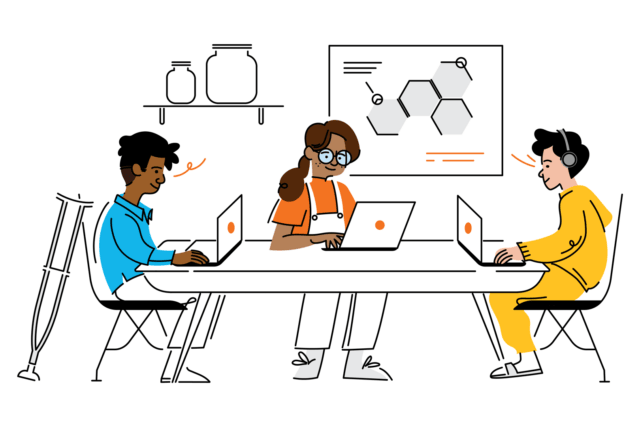
Winter Wrap-up: Catch up on our most popular episodes!
While we prepped for Season 3 of Science Connections, we revisited past episodes and pulled out some of our favorite conversations for a special Winter Wrap-up! Check out some of our most popular episodes about community and joy in Kâ8 science instruction, overcoming adversity in the classroom, and supporting žâ―ÐĘÓÆĩapp with a creative twist.
-
Episode 3: Supporting žâ―ÐĘÓÆĩapp with a creative twist: A conversation with Kentucky Science Teacher of the Year Shad Lacefield
In this episode, Eric sits down with the Kentucky Science Teacher of the Year, Shad Lacefield. Shad talks about what it’s like to be teaching during the first year of the pandemic, where he dressed up in over 100 costumes to create a unique and engaging online learning experience for his žâ―ÐĘÓÆĩapp. Shad also explains ways he connects with his žâ―ÐĘÓÆĩapp to celebrate their successes, as well as large-scale efforts he leads within his school to cultivate the love of learning science content.
Listen now -
Episode 2: Overcoming adversity in the science classroom: A conversation with Joe McCormick
In this episode, Eric sits down with Joe McCormick, director of engineering at SplitSpot. Joe shares about the experience of losing his central vision in high school and the transition into college at Harvard. Eric and Joe chat about self-advocacy within the classroom, and scaffolds that worked for Joe as he learned how to navigate the world with his disability. Eric also learns about beep baseball, the adapted national pastime for the blind and visually impaired, and the importance of its community in Joeâs journey to become an engineer. Lastly, Joe talks about accessibility tools, college acceptance, and how to motivate žâ―ÐĘÓÆĩapp to love computer science.
Listen now -
Episode 1: Community and joy within Kâ8 science instruction: DesirÃĐ Whitmore
In this episode, we join Eric Cross as he sits down with physicist and science education specialist DesirÃĐ Whitmore. Listen in as DesirÃĐ explains her work at the Exploratorium, a public learning laboratory. Eric and DesirÃĐ discuss finding passion in science, the importance of meeting žâ―ÐĘÓÆĩapp where theyâre at, and Kâ8 science instruction with real-life connections. DesirÃĐ chats with Eric about her work supporting the science of teaching science at the Exploratorium museum.
Listen now
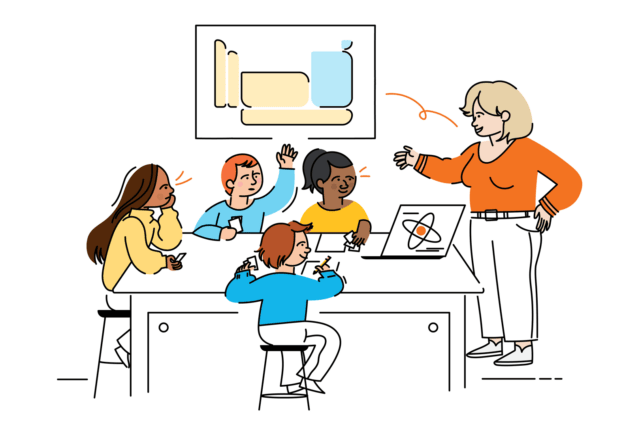
S2: Stories in STEM
Our second season features many educators and experts discussing their personal journeys in STEM, as well as ways to engage the next generation of scientists. Topics covered include gamification in the Kâ8 classroom, building meaningful student connections, project-based learning, and making time for science in the Kâ5 classroom.
-
Episode 6: Making time for science in the Kâ5 classroom
In this episode, Â Eric Cross sits down with TikTok star and podcast host Lauran Woolley about her experience teaching science content in her Kâ5 classroom. Lauran shares how sheâs learned how to make time for science and what most Kâ5 teachers experience when creating their own science curriculum. Lauran also talks about her rise in popularity on TikTok; her podcast, Teachers Off Duty; and establishing strong relationships with her 5th grade žâ―ÐĘÓÆĩapp.
Listen now -
Episode 5: Moving žâ―ÐĘÓÆĩapp forward with project-based learning
In this episode, Eric Cross sits with Kâ5 educator Janis Lodge to chat about building on her own science curriculum to create meaningful project-based learning experiences. Janis shares her work teaching Gifted and Talented Education (GATE), and how to use those practices to help accelerate the learning of all žâ―ÐĘÓÆĩapp. Eric and Janis also talk about making time for science within Kâ5 classrooms.
Listen now -
Episode 4: Gamification in the Kâ8 classroom
In this episode, Eric Cross sits down with his colleague and friend Fabian Hofmann to talk through gamification in the Kâ8 classroom. They discuss Fabianâs experience teaching outside of the United States, and the differences in classrooms outside of the country. Fabian explains the integration of game mechanisms in the classroom, standard-based grading, and shifting student thinking about learning by forming strong relationships. Fabian also shares how he created a new STEM course at his school, revolving around his own passion for Star Wars.
Listen now -
Episode 3: Building meaningful student connections in the science classroom
In this episode, Eric Cross sits down with Indiana State Teacher of the Year Sharita Ware to talk about how to successfully build meaningful student connections in the science classroom. Sharita shares her journey from a corporate career to becoming Indianaâs 2022 Teacher of the Year, and her passion for creating project-based lessons for her žâ―ÐĘÓÆĩapp. Together, Eric and Sharita discuss how educators can teach žâ―ÐĘÓÆĩapp to love science content by building strong relationships, adding in other content areas, and supporting žâ―ÐĘÓÆĩappâ imagination.
Listen now -
Episode 2: Developing your own teaching style: Tips from a veteran teacher
In this episode, Eric Cross sits down with veteran educator and former Miami-Dade County Public Schools (M-DCPS) Middle School Science Teacher of the Year Marilyn Dieppa. Marilyn shares tips for new teachers, ways to inspire žâ―ÐĘÓÆĩapp, and how she utilizes her journalism background to develop literacy skills within her science classroom. She also shares her experiences developing a robotics academy and participating in the VEX IQ World Championship.
Listen now -
Episode 1: How teachers are really feeling this school year
In this special solo episode, Eric Cross starts the season by sharing his personal journey as an educator, and how the difficulties of the last few years have shaped his mindset going into the upcoming school year. Eric also addresses teacher burnout and what inspires him to continue working as a classroom educator.
Listen now
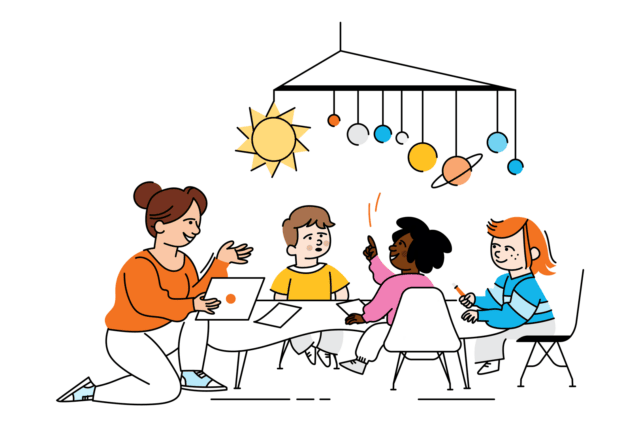
S1: Why is science so important?
Listen to the very first season of Science Connections! In our inaugural season, we cover important pillars in science instruction, like science and literacy integration, connecting with žâ―ÐĘÓÆĩapp and caregivers, supporting žâ―ÐĘÓÆĩapp in the digital world, and risk-taking. Youâll get tips and strategies from innovative educators like Kentucky Teacher of the Year Shad Lacefield, as well as passionate experts from organizations like the Lawrence Hall of Science, SpaceX, BrainSTEM, and Code.org.
-
Episode 10: Empowering the science educator: Jessica Kesler
In the final episode of the season, Eric sits down with his friend and professional development facilitator Jessica Kesler. Jessica describes her passion for sharing free, high-quality, empathy-centered professional development for Kâ12 educators. Jessica also shares her experience jumping into leadership positions while teaching in Philadelphia, and chats with Eric about how žâ―ÐĘÓÆĩapp often lean on teachers for more than delivering content.
Listen now -
Episode 9: Supporting Kâ8 science žâ―ÐĘÓÆĩapp in the digital world: Ricky Mason
In this episode, Eric sits down with Ricky Mason, chief executive officer of BrainSTEM. Ricky shares his passion for inspiring žâ―ÐĘÓÆĩapp into science careers, as well as his own path from an engineering career with organizations like the Department of Defense, NASA, and the Central Intelligence Agency to starting BrainSTEM, an education program that develops creative digital tools to enable all teachers and žâ―ÐĘÓÆĩapp to dive deeper into STEM content. Ricky and Eric talk about representation in science classrooms and the importance of embedding fun within Kâ8 science content!
Listen now -
Episode 8: The importance of risk-taking in the science classroom: A conversation with Valeria Rodriguez
In this episode, our host Eric Cross sits down with Miami-based educator Valeria Rodriguez. Valeria shares her journey of serving in the Peace Corps, working a corporate job, and eventually finding her passion as a middle school science teacher. Listen in as Valeria explains how sketchnoting, a form of note-taking that utilizes illustrations, encourages student choice, and fosters creativity in her classroom. Eric and Valeria also discuss the importance of risk-taking within the science classroom, and how žâ―ÐĘÓÆĩapp’ own mistakes can be crucial in modeling resilience. Lastly, Valeria shares experiences she had with several teachers who inspired her throughout her career.
Listen now -
Episode 7: Overcoming adversity in the science classroom: A conversation with Joe McCormick
In this episode, Eric sits down with Joe McCormick, director of engineering at SplitSpot. Joe shares about the experience of losing his central vision in high school and the transition into college at Harvard. Eric and Joe chat about self-advocacy within the classroom, and scaffolds that worked for Joe as he learned how to navigate the world with his disability. Eric also learns about beep baseball, the adapted national pastime for the blind and visually impaired, and the importance of its community in Joeâs journey to become an engineer. Lastly, Joe talks about accessibility tools, college acceptance, and how to motivate žâ―ÐĘÓÆĩapp to love computer science.
Listen now -
Episode 6: Supporting žâ―ÐĘÓÆĩapp with a creative twist: A conversation with Kentucky Science Teacher of the Year Shad Lacefield
In this episode, Eric sits down with the Kentucky Science Teacher of the Year, Shad Lacefield. Shad shares his experience teaching during the first year of the pandemic, where he dressed up in over 100 costumes to create a unique and engaging online learning experience for his žâ―ÐĘÓÆĩapp. Shad also explains ways he connects with his žâ―ÐĘÓÆĩapp to celebrate their successes, as well as large-scale efforts he leads within his school to cultivate the love of learning science content.
Listen now -
Episode 5: How does coding fit in the science classroom? A conversation with Aryanna Trejo of Code.org
In this episode, Eric sits down with Aryanna Trejo, a professional learning specialist at Code.org. Aryanna shares her journey from working as an elementary teacher in New York City and Los Angeles to teaching other educators at Code.org. Eric and Aryanna chat about computer literacy within the science classroom, problem-solving skills, and ways to model productive struggle for žâ―ÐĘÓÆĩapp. Aryanna also shares ways to teach coding and computer literacy in žâ―ÐĘÓÆĩapp, no matter the classroomâs technology level.
Listen now -
Episode 4: Connecting with žâ―ÐĘÓÆĩapp and caregivers in the science classroom: Ryan Rudkin
In this special episode, our host Eric Cross sits down with veteran middle school teacher Ryan Rudkin. Ryan shares her expertise after almost two decades in the classroom, discussing ways to incorporate aspects of problem-based learning into the Kâ8 science classroom. Eric and Ryan talk about how to increase parent engagement, involve community members, and add excitement to lessons.
Listen now -
Episode 3: Ways to integrate literacy skills into a Kâ8 science classroom: Rebecca Abbott
In this episode, our host Eric Cross discusses the importance of integrating literacy skills into science instruction with Rebecca Abbott, Professional Learning Lead at the Lawrence Hall of Science at UC Berkeley. Listen in as Rebecca challenges science educators to weave together vocabulary, background knowledge, and an understanding of language structures to help žâ―ÐĘÓÆĩapp make sense of complex science texts. Eric and Rebecca chat about ways to infuse literacy into science.
Listen now -
Episode 2: Community and joy within Kâ8 science instruction: DesirÃĐ Whitmore
In this episode, we join Eric Cross as he sits down with physicist and science education specialist DesirÃĐ Whitmore. Listen in as DesirÃĐ explains her work at the Exploratorium, a public learning laboratory. Eric and DesirÃĐ discuss finding passion in science, the importance of meeting žâ―ÐĘÓÆĩapp where theyâre at, and Kâ8 science instruction with real-life connections. DesirÃĐ chats with Eric about her work supporting the science of teaching science at the Exploratorium museum.
Listen now -
Episode 1: The journey from student to SpaceX engineer: Juan Vivas
In this episode, we join Eric Cross as he talks to supply chain engineer Juan Vivas of SpaceX about his experiences growing up as a Latino in STEM. Juan shares his story of moving to the United States to study engineering and becoming successful in his career as a scientist. Juan discusses the experiences that made a difference in his life and the teachers who inspired him along the way. He also shares his experience as an engineer in different fields, as well as what itâs like to work in the supply chain during COVID.
Listen now
Resources
Stay connected
